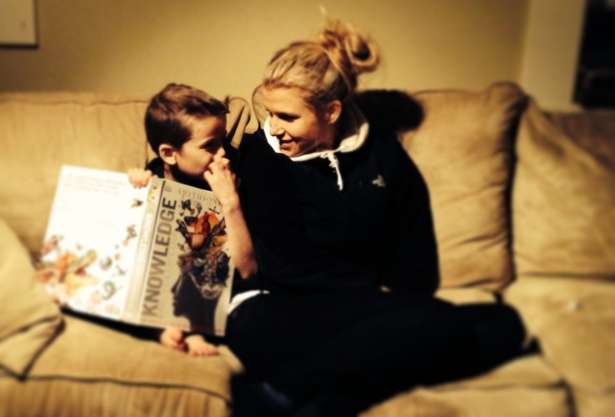How hard do I push my hesitant child? ~ Written by Kari Patterson
As I typed this title tears sprang to my eyes. Wow, what a journey it’s been.
If I had to sum up what it’s been like the last 16 years with an Asperger’s child, this question is what comes to mind. How hard do I push my hesitant child? I’ve erred on both sides of pushing — too much, not enough — at times, so I write this not as someone who’s nailed it, but as someone who’s experimented a lot and has a few thoughts to share.
I remember when Dutch was a toddler we joked that his favorite thing to do was whatever he was already doing. It didn’t matter what, he just didn’t want to do something else. Even now, we joke that he’s a bit of a hobbit — he loves home, favorite foods, familiar comforts, he even has wide, flat feet.
Years ago I talked to a seasoned mom who had raised an Asperger’s son. She said she would’ve pushed him a little more to try new things like sending him into the store by himself to buy milk. Her son is grown and thriving, so obviously it wasn’t detrimental to his development, but I appreciate her honest reflection.
I’ve constantly felt this tension. The very thing I love about homeschooling is the gentle, unhurried pace. But I also love that it affords me the freedom to do whatever is best for my unique child, and some children do indeed need a little nudge.
How hard do I push my hesitant child?
Let’s look at three questions to help guide: To push or not to push?

1. Is my own unhealthy fear motivating this push?
There is healthy fear, of course: Will I overindulge his timid tendencies in such a way that he’ll be unprepared for real life? Will I push too hard in such a way that he’s scarred and therefore equally unprepared for real life?
I think a touch of that is healthy. We recognize the weight of our responsibility as parents. We’re not flippant.
Unhealthy fears come into play when we’re worrying about what other people think, trying to make our children into something that satisfies our own egos, constantly trying to keep up with so-and-so’s kids, and thinking our children’s performance is some sort of report card that proves we’re doing well as homeschool parents.
The question is: What’s best for him?
2. Is it something in line with how he or she is already wired?
I see healthy parental pushing as the strategic placement of pressure in order to empower a child to do what you’re pretty sure they’ll end up loving. Of course “pretty sure” is the key. This whole parenting thing is a risk from start to finish.
Over the years we’ve watched Dutch closely and tried to nudge his natural gifts. Piano and baseball were early ones that we thought he’d love. Alas, he did not.
When he was young I made him go outside every single day for a nature walk, Charlotte Mason style, and he hated it. But at 12 we enrolled him in a school for homeschool teens, which was a huge step as he’d never learned away from home. He LOVED it and is still going strong.
This year we encouraged him to run Cross-Country at our local high school. This was a huge stretch for him, and at first he decided he didn’t want to, but the coach wrote him an email that inspired him, he agreed to run and ended up loving it. Now he’s running track as well and plans to do both through his high school career.
He’s looking forward to college and handles most new situations with confidence.

3. Am I willing to stay close when he struggles through the push?
Helping a reluctant child try something new requires a lot of us as parents. Honestly, it’s often easier not to try the new thing, whatever it is. Just last week there were two separate instances where I needed to push our older two kids a bit. It meant a significant time commitment for me in both situations.
As a parent, I need to be ready to absorb the time and emotional cost of being beside them and helping them navigate that hard thing.
In my instance, it was so worth it! They both passed the “test” of the situation with flying colors and felt more confident and encouraged as a result of doing the hard thing.
Oh friends, I’ve done this poorly so many times. But I’m also so grateful for the times these nudges have been exactly what our kids have needed. You may not like the word push. Feel free to term it however you’re comfortable — a nudge, a strong encouragement, a joyful steady force.
Whatever we call it, let’s help our hesitant children be all they can be!
What’s Your Homeschool Mom Personality? Take Jamie’s quiz now and receive a free personality report to help you organize your homeschool based on what your type needs most!



 Weekend homeschool links: May 12th
Weekend homeschool links: May 12th
Hi,
I just found out this year that my teenager has autism (level 1, Asperger’s) and inattentive adhd. He’s also gifted. I can relate to much of what you write about your son. How are you helping prepare him for college?
I’m confident my son can do the academics, maybe at a slightly slower pace. It’s the remembering to do life things that I’m not sure how he’ll handle. Since getting the diagnosis I’ve heard a number of stories of young adults with autism who stopped going to class, or avoided the cafeteria because of all the people and ate out of the vending machines. My husband went to a college well-known for engineering/computer science, and knew several students who didn’t graduate who could fit into this pattern.
We’re open to whatever he’d like to do after high school–it doesn’t need to be college–but you’re the first person who’s written of a similar high-schooler who is “looking forward” to college.
Any thoughts would be appreciated. : )
Thanks!
Hi there! Great question. Well of course I’m not sure if we’re preparing him well for college (ha!) since he hasn’t started yet, but the things that come to mind: 1. Doing a sport (or club, or team of any kind) has been HUGE. It’s been really good for him to have to navigate some real-world experiences while still in a pretty safe environment. 2. Having to manage all his school work on his own. His schedule is actually very college-ish. He takes online classes that meet 1/week “live” and then the rest of the lectures and homework he does on his own time. This helps him have to manage his time and work on his own, which is exactly how it is in college. I’m still here to help him when he’s struggling, but this seems like it’s perfect preparation for a college schedule. 3. Getting a driver’s license and practicing some real-world responsibilities. Running errands, taking siblings places, keeping track of items and managing his time. At least for us, these things have been really helpful. Next year (Jr. year) he’ll start taking AP classes, so we’ll see how that goes! I see that as the next step toward helping him be college ready. I totally agree with you that college isn’t for everyone, but he WANTS to go, so we can happy to push him to do what we think he will be happy he did.
I agree with every factor that you have pointed out. Thank you for sharing your beautiful thoughts on this.